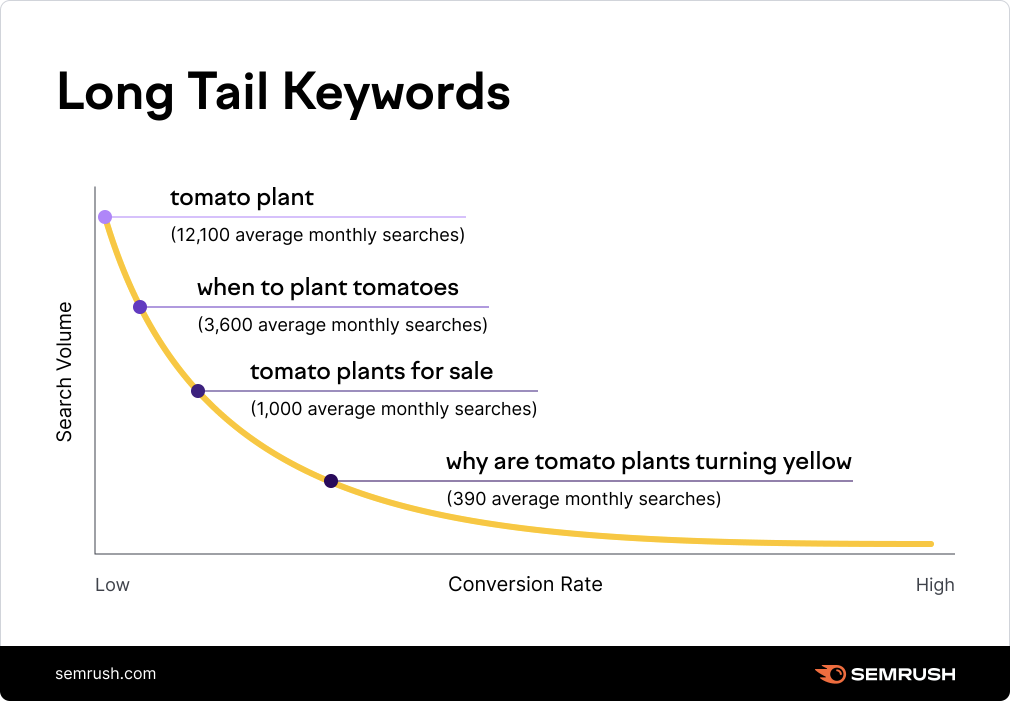SEO is a game-changing tool in the modern era, offering countless opportunities to share your message with customers and prospects around the globe. Utilizing specific keywords can be one of the most powerful strategies for gaining visibility online. In order to carry out effective SEO keyword research and determine which words you should use in your content, it’s important that you understand exactly what keywords are as well as their relevance.
Since the birth of the commercial internet, digital marketers have been bent on perfecting Search Engine Optimization (SEO) and the keyword research process. A quick Google search about SEO keywords will reveal the breadth and depth of the curiosity and confusion surrounding the topic.
There are a few commonly asked questions that come up when discussing this topic, including:
- What are SEO keywords?
- Are there different types of keywords for SEO?
- How do you use SEO keywords?
- Are keywords still relevant?
- What do people see in Downtown Abbey? (Caught you sleeping, didn’t I? )
Here, we will discuss just what these key phrases are and examine five core reasons why they should be incorporated into all digital marketing initiatives. Join me as I tackle these and other vital questions, providing insight into this much-discussed, often misunderstood, and still relevant aspect of digital marketing and website optimization.
What are SEO Keywords?

As a content development and strategy professional with over 25 years of experience, I can confidently say that having the right keywords, or key terms, is one of the most critical components of a successful search engine optimization strategy.
I hear you in the back: “Of course, you’d say that, you do content” – but stick around. You’ll see it’s not just because I “do content.” For those of you who’ve been around the internet and seen “SEO keywords are useless today,” let’s table that discussion until the end of the article, shall we?
With that said and addressed, what exactly are SEO keywords, and why are they so important?
SEO keywords are topic-specific words and phrases strategically placed to help your web content rank higher in the search results, making it easier for your target audience to find you. They run the gamut from single words to clusters of words to questions and longer, more refined keyword phrases.
They’re essential because they:
- help you ensure your website stays on topic
- help search engines understand the relevance of your site to a particular search word
- allow visitors to get a better user experience
- help customers have a better customer experience
- help you understand where and how to reach leads at specific touchpoints in their journey to the sale
Further Reading: Trying to become an expert in SEO? Here’s how to get started in 2025
The 4 Main Types of SEO Keywords (and How to Find Them)
The number of “types” can change depending on who you’re talking to. Here are a few of them, each with its unique characteristics. In brief:
1. Seed Keywords
Seed keywords are very generic. They’re your starting point for developing a robust SEO strategy. Finding seed keywords is as simple as asking yourself a question: What am I selling? The answers, in singular words, are your seed keywords.
Example:
A clothing outlet might have some of the following terms:
- Shoes
- Shirts
- Hoodies
Notice the lack of any descriptors. When doing keyword research, start with seed terms. Write down any you can think of. These will help you dig in to develop a more robust keyword profile.
2. Long Tail Keywords

Long tail keywords take your seeds and turn them into what we in the industry call “low-hanging fruit.” These differentiators set your services or products apart from your competitors. They’re called low-hanging fruit because they don’t have as high a search volume as the generic terms. What they do have going for them is something far more magical – qualifiers.
An often-used example is blue and red widgets. Many people sell widgets of various colors, but only five companies sell blue widgets. As one of those companies, you would use a long-tail version of the seed keyword “widgets.” Instead, your term would be “blue widgets.” The side benefit of this is that you are automatically helping your site disqualify anyone looking for any color of widget other than blue.
Long tail terms can be as long or as short as you need (beyond the seed term). You might have “blue screen widgets,” “blue world clock widgets,” or “blue Windows widgets,” for example.
Finding long-tail keywords takes a little research. In some ways, it’s simple (like blue versus red widgets). In other ways, it’s a little more complex. Ideally, you want to choose competitive keywords with the lowest competition and the highest monthly search volume.
3. Intent-based Keywords

Search intent is a never-ending field of study. After all, if we can figure out intent based on a search query, we can better create and optimize different types of content for that intent.
Is Your LinkedIn Not Delivering Results?
Just released: my new book to help professionals, entrepreneurs, and business owners maximize LinkedIn for real growth.
With years of LinkedIn expertise, Maximizing LinkedIn for Business Growth offers actionable steps to build your brand, expand your network, and drive results.
Start leveraging LinkedIn like never before—grab your copy now! Click the cover or button below to buy on Amazon.
Remember how I promised keyword research could help you talk to your leads at specific touchpoints? Yeah, that’s happening right here.
Within intent-based keywords, we take the concept of long-tail keywords up a notch:
- Informational: Your searcher is on the hunt for information. They don’t know you. They may not even know that what you offer is out there. What they know at this point is that they have a pain point, and they want to know what to do about it. Blogs, articles, infographics, videos, and downloadables are good items to have for this essential awareness-building touchpoint.
Informational queries often start with questions: What is? How do I?
- Commercial: These are business potential money terms. Your searcher knows about a specific product but wants to learn more about it. At this point, they may or may not know about you specifically. Robust product or service pages that include in-depth descriptions and reviews help fulfill this intent, providing more information as well as an incentive and opportunity to buy.
Commercial queries may or may not include a brand name: Level343 reviews, deals on blue widgets, fractional CMO discounts
- Navigational: The user searches for a specific page within your site from a search engine. Landing pages are an excellent touchpoint. Consider why someone would come to a particular page, whether a service page, contact page, location page, or something different. Think about what target keywords they might search to get to these pages.
Navigational queries often include a brand or site name with another term, but aren’t necessarily combined with commercial intent: Neal Schaffer blog, Facebook login
- Transactional: Your searcher now knows everything they need to know and are ready to buy. They’ve read the information, checked out reviews, and have their credit card ready. Now they want to make that sale.
Transactional queries often include brand names, but don’t have to: buy a Samsung 21, summer sandals for sale
4. Local Keywords
Local keywords are location-specific search terms such as “plumber near me” or “best sushi restaurant in New York City.” They can also include location-specific slang, such as “shopping trolly” instead of “shopping cart” or “flat” instead of “apartment” for the UK. Optimizing for local keywords can help businesses with a physical location increase their visibility in local search results.
A Nod to Semantic SEO

Although semantic SEO isn’t, technically, a type of keyword, it does affect the way you create a piece of content, develop optimization strategies, and – at the base – develop your key terms.
It may sound kind of new-ish, but semantic search as we know it has been around since (approximately) 2013, when Google’s Hummingbird Update rolled out. With semantic SEO, you focus on a specific topic rather than a single keyword. Much like this article here.
Remember your seed keywords? They act as the foundation for semantic SEO – the starting point. Instead of grabbing a single seed keyword and turning it into a single long tail term, you create a keyword, or keyphrase “clusters”. Of course, this is a whole different article, so we’ll move on, but take the time to read more about semantic SEO. You’ll thank me later.
By incorporating related terms, synonyms, and entities associated with your target list of keywords, you can enhance the semantic understanding of your content, and help search engines grasp the context and meaning behind it.
Read On-Page SEO: How to Best Optimize the 4 Main Factors to Increase Search Engine Rankings for further information on what to do with these keywords once you find them.
4 Reasons SEO Keywords Are Important
I’ve covered quite a bit of information about SEO keywords, but the most important question has yet to be answered. Why is all of this, any of this, important?
Here are just a few reasons to concern yourself with keywords, keyword research, and keyword optimization:
1. Keywords help search engines understand your pages.

The more tightly targeted each page is around a single term, or small set of terms, the more relevant that page becomes for specific search queries. Therefore, the more relevant, the better your chances are at ranking well in the search engine results pages (SERPs).
Now, this doesn’t mean leave semantic search out. Your single term should be the topic. Within that topic, use the standards of semantic SEO to incorporate other related terms. It may sound difficult, but here’s a professional trick:
Thoroughly cover the topic of your article. Try to imagine what questions someone would want to ask, and then answer them in full. Use People Also Ask in Google to get ideas of questions that could be converted into keyword ideas. Using this as part of your content creation process will greatly improve the results of your content.
2. Keywords attract targeted organic traffic to your website.
As I mentioned earlier about intent-based terms, you can use intent to attract visitors who are actively searching for what you offer. Using intent-based and long-tail terms helps qualify your visitor, which makes them more likely to convert.
Ultimately, keywords keep your content targeted. These keywords guide your content creation process by keeping you focused on the topic at hand.
As you write, keeping your target term in mind helps ensure your content aligns with your user’s search intent, providing an improved user experience. Visitors find information that precisely matches their queries, making it more likely for them to engage with your website and stay longer.
Further Reading: What is Organic SEO and 12 Strategies to Use It Wisely
3. Keywords help target specific locations.
This localization strategy increases the relevance of your website for local searches, driving more targeted and qualified traffic and potential customers. When you apply localization to your page with local keywords, it provides two uses. One, search engines can understand where best to rank you. After all, it doesn’t do any good to rank as the number one pizza place in Long Island if you live in San Francisco.
The second use is to resonate better with your local audience by indicating how close you are to them. It answers their question: Are they close enough to you to visit your establishment?
Furthermore, when you optimize your content around relevant keywords that are local to your audience, you have a better chance of attracting local users actively searching for information or products related to those keywords. This increases the likelihood of engaging with a relevant and interested audience and building a local community.
4. Keywords can help refine your SEO strategies.
Keywords are instrumental in tracking and measuring the performance of your optimization efforts. Monitoring your keyword ranking and click-through rates, among other metrics, lets you effectively evaluate your strategies.
Does one keyword drive traffic to a page better than another? Do searches from a particular set of terms convert better than others? Armed with this information, you can optimize underperforming strategies and capitalize on successful ones.
Yes, certain keywords can drive traffic to a page more effectively than others. An effective keyword can help drive traffic, but its effectiveness depends on factors such as search volume, competition, and user intent.
Some keywords may have higher search volumes, indicating a larger pool of potential traffic, while others may have lower search volumes but less competition (low hanging fruit), allowing for better visibility in search results. Similarly, searches from a particular set of terms can have different conversion rates. Conversion rates can vary based on the intent behind the search and how well your content aligns with that intent.
For example, specific long-tail keywords that reflect a high purchase intent may result in better conversion rates compared to more general informational keywords. By analyzing data on keyword performance and conversion rates, you can identify which strategies are underperforming and adjust your optimization efforts accordingly.
This information allows you to refine your keyword targeting, optimize content to better align with user intent, and capitalize on successful keyword strategies to drive more conversions.
Further Reading: The 15 Best Free SEO Tools You Need to Know in 2025
Wrapping It Up
At their base, SEO keywords are specifically chosen based on what your target audience uses to find your products and services. There are several different types, of which I explained a few important ones: seed, long-tail, intent, and local. How you use them depends on what you’re trying to accomplish.
Implementing an effective SEO keyword strategy is essential for increasing organic search engine traffic to your website. When effectively chosen and used, keywords will help you refine your search engine ranking strategies, attract targeted audiences, and target customers in specific locations.
You should always focus on choosing semantic keywords that accurately describe the online content of your website and create a call to action that resonates with searchers. By doing so, the right visitors will be drawn to your website and once they get there, actions can be taken that will enhance their online experience – and yours.
To ensure success, organize your keyword lists based on the market opportunities you want to capture – analyze volume, competition, relevance, trends and position for each term. This planning is key when it comes to maximizing SEO-driven traffic flow and keeping users engaged across multiple channels.
Further Reading: The 23 Best SEO and Keyword Research Tools to Power Your Search Engine Marketing
Final Thoughts
Ultimately, by investing time in researching, refining and targeting SEO-friendly keywords properly for various content verticals within a website, article, or blog post can result in significant increases in organic rankings; so don’t skimp on testing any new popular keywords that may emerge over time. Semantic keywords will always be at the core of any search engine optimization strategy; so build these into your campaigns as this is likely one of the quickest ways to reap rewards from increased web visibility.
Author Bio
Gabriella Sannino is a well-known author, branding expert, and international marketing consultant. As the founder of Level343, an international marketing and SEO company, her mission is to help businesses of all sizes succeed in an increasingly competitive global marketplace. With over two decades of experience in the industry, Gabriella’s expertise lies in Internet marketing strategies, optimization, and branding. Her passion for delivering comprehensive marketing information has made her one of the most sought-after thought leaders in the industry.
Hero photo by Jo Szczepanska on Unsplash










